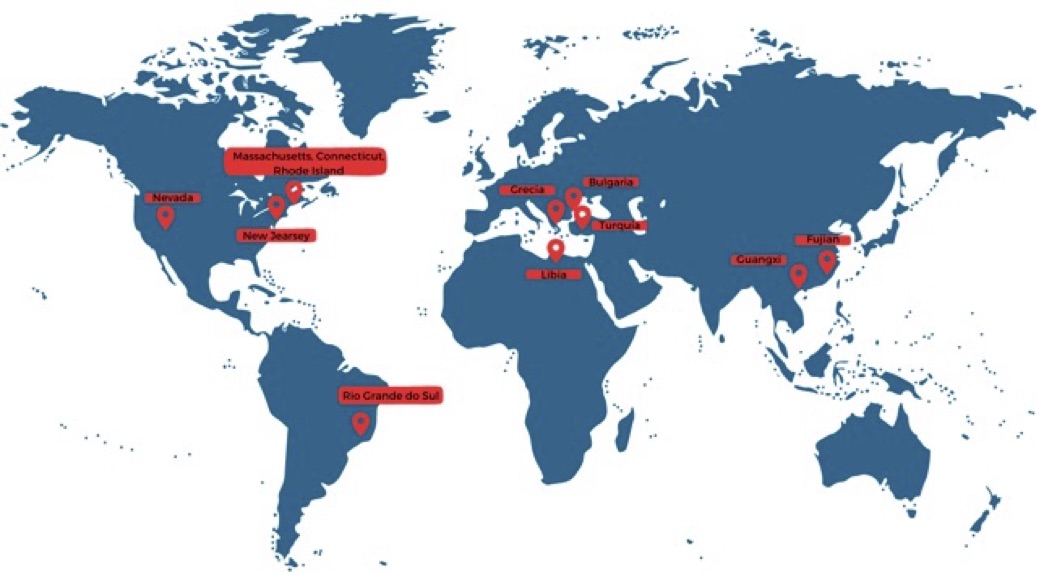In the first days of September 2023, just over a dozen countries have experienced severe rainfall, causing human and material losses. At least one country on each continent was affected by flooding. It is common for this type of natural disaster to hit these places. However, it is unusual for it to happen at the same time. Climate change is the main culprit for the damage already done and the rise in prices due to reduced harvests and business closures.
Storm Daniel was a "medicane", a tropical-type cyclone in the Mediterranean. It was the deadliest and most costly in history. On 5 September, the storm hit Greece with force and flooded the Thessaly Valley, one of the few plains in the country, turning it into a lake over three days. The heavy rains deposited more than a metre of sediment on once-fertile land. The region produces about 15 per cent of Greece's annual agricultural output. It includes wheat, cotton, cereals, tobacco, cheeses, wines and local liquors. It also excels in producing fresh fruits, nuts, lamb and goat meat, and olives. With the disaster, agricultural production is affected this year, and the dense layer of mud has left the soil infertile.
The storm subsequently reached Bulgaria and Turkey. In the case of Bulgaria, its Black Sea coast was affected by flash floods, halting the flow of tourists and disrupting its electricity and water supply. Meanwhile, torrential rains caused damage in the north-western part of Turkey, in the province of Kırklareli, which is involved in dairy products, vegetable oil facilities, meat processing and flour production facilities, and wine production.
The storm subsequently hit the northern coast of Libya, in particular the city of Derna. Torrential rains caused flooding and destruction, making it the worst natural disaster in Libya's modern history. The infrastructure of two dams, previously affected by years of war and NATO intervention, collapsed and resulted in the disappearance of approximately 25% of the city of Derna. Recovery of essential services such as electricity, water and sanitation is still to be determined, increasing the risk of disease outbreaks.
In Asia, two strong typhoons, Saola and Haikui, hit the region, causing considerable damage in Taiwan, Hong Kong and several areas in southern China, including Shenzhen. Haikui triggered flooding and landslides in Chinese provinces such as Fujian and Guangxi. Fujian is known for its manufacturing, while Guangxi is known for its agricultural production (rice, corn and potatoes) and mineral reserves, which are crucial to the Chinese economy.
On the other side of the world, on the American continent, the United States and Brazil have also been hit by heavy flooding in various parts of their territories. The North American country experienced thunderstorms and flash floods in several states, such as Massachusetts, Connecticut, Rhode Island, Maryland, Nevada and New Jersey, which damaged neighbourhoods and roads. These regions have a strong presence in dairy, fruit, vegetable and timber production.
A cyclone in Brazil left more than 2,300 people homeless and 3,900 displaced in 67 municipalities. Hail and heavy rains caused damage in Rio Grande do Sul. The state had already been hit by another cyclone in July, causing the loss of 15,000 tonnes of lettuce and 3.8 thousand tonnes of cauliflower. Rio Grande do Sul is the country's largest producer of rice, tobacco and wheat and the third largest producer of soybeans.

The natural phenomena that swept the world during the first days of September are not the result of climate change but enhanced by the climatic circumstances resulting from global warming. According to Jung-Eun Chu, an atmospheric and climate scientist at the City University of Hong Kong, the atmosphere can hold more moisture when the temperature rises and the ocean surface warms. For every degree Celsius increase in temperature, the atmosphere can retain 7 per cent more humidity.
Abnormally warm oceans and seas caused storms and cyclones to slow down and hold more water, leading to catastrophic consequences. Human-induced climate change puts the world's food security at risk. Crop failures around the globe are putting pressure on already high international prices and keeping global inflation high.









